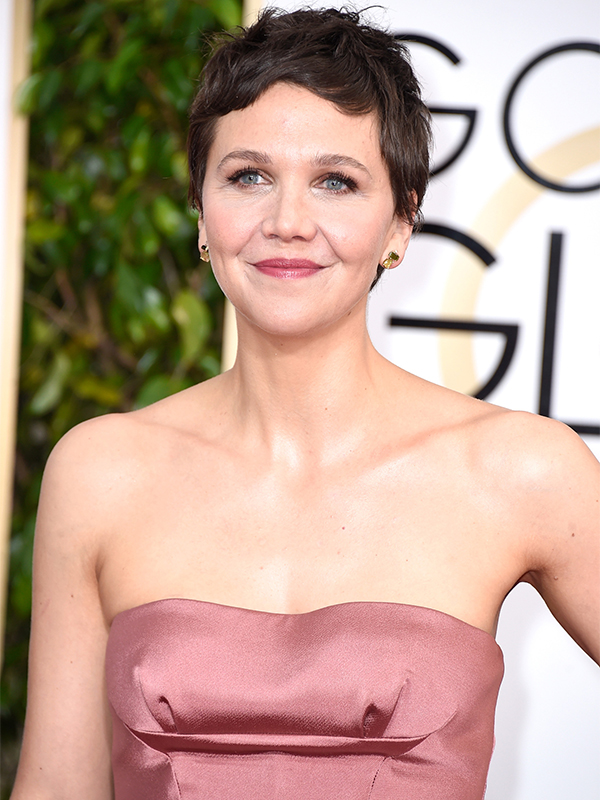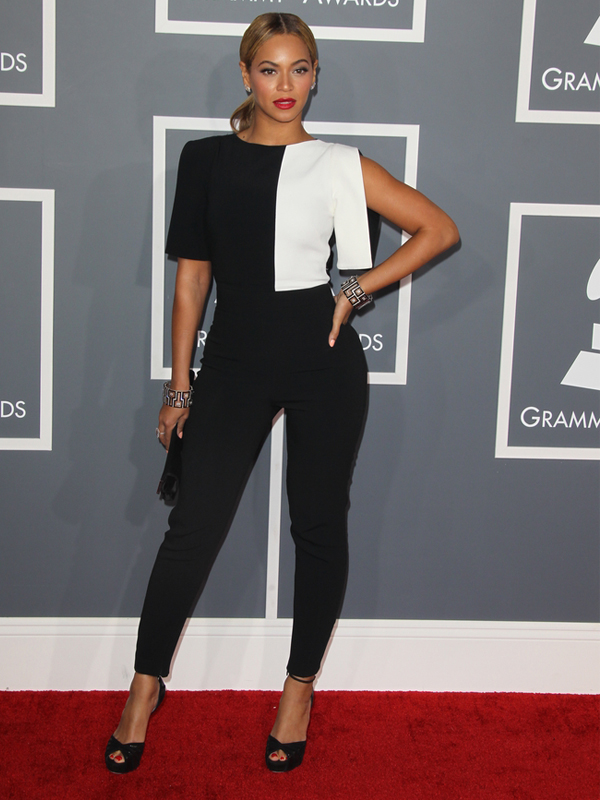Let's start with a cold, hard, gross reality: Hollywood is still a white boys' club. This is not news. Reading this sentence isn't blowing your mind. But last nights' Globes were certainly an indicator that women in the arts are reallyyyyy over your bull, everybody.
To start, for the last time, Amy Poehler and Tina Fey stepped up to host the 72nd Annual Golden Globes, and from the get-go, they made one thing very obvious: they were not f-ing around. Jokes about ageism, female beauty standards, and Bill Cosby were not just on the table, the jokes did that thing where you pull a tablecloth from underneath a bunch of dinner plates and everyone's left terrified by the obvious display of wizardry. (The North Korea bit though, I … what happened? I don't get what happened. A lot of people had to approve that, you guys. I want to talk to those people. I want answers about why that was allowed to exist, and for so long. …Or do I? Probably not. But still.)
But the the jokes weren't just the only call-out of the strange standards to which women in the arts are still held. While we tend to herald women in Hollywood as being wonderful, amazing, and strong (which they are — but those are the descriptors usually used, well, all the time), Maggie Gyllenhaal used win for "The Honourable Woman" to sing the praises of being a complicated, vulnerable, damaged woman. So, a real woman.
"I've noticed a lot of people talking about the wealth of roles for powerful women in television lately," she said. "And when I look around the room at these women who are in here and I think about the performances I've watched this year, what I see actually are women are sometimes powerful and sometimes not; sometimes sexy and sometimes not; sometimes horrible and sometimes not."
"And what I think is the new wealth of roles for actual women in television and in film," she continued. "That's what I think is revolutionary, and evolutionary, and it's turning me on."
And considering "Jane the Virgin's" Gina Rodriguez earned a Globe and "Transparent's" Jill Soloway picked one up too, Gyllenhaal isn't wrong: the women getting shit done in Hollywood right now aren't two dimensional caricatures; they're grown-ass, hard-working, complicated people. And now it's time for them to win more, do more, get more chances.
Sexism in Hollywood wasn't saved by a few good speeches and perfectly-executed jokes — in fact, it's just the first step in about 25925825 to getting women to where men were in the 1940s. I mean, hello: Russell Crowe said last week that ageism is a myth. Last night, Jeremy Renner made a joke about Jennifer Lopez's boobs. Kevin Hart stole Selma Hayek's lines. And, like, ha ha ha! WHO ARE YOU WEARING HOW DID YOU GET INTO THE DRESS HOT OR NOT ETC ETC. (And those are just things that happened last night. At an awards show.)
The reception to speeches by Soloway, Rodriguez, Gyllenhaal, and even Ruth Wilson was proof that we are ready to stop fucking around; that women on screens small or big don't need to be flawless or perfect or anything we wouldn't ask men to be. After all, we pray to shrines honouring Don Draper and Walter White — could women play those roles yet? The character of Piper Kerman comes close, but "Orange is the New Black" is still — sadly — a phenomenon. "So many women and women of colour onscreen!" we say, amazed and relieved. And rightfully so! That show is GROUNDBREAKING. So now when do we get more shows like it?
Creating a discussion — the way any woman on that Golden Globes stage did last night — is where we can start. The reason any and all ageism jokes may have seemed too real was because they were. (And it was probably very uncomfortable for a lot of people who've exercised their right to decide when a woman is and isn't too old for a movie role.) That win by Rodriguez went over as emotional and sincere because a) it was, and b) she used it to acknowledge that the Latino community deserve to be heroes too (and have been deprived of those roles, monumentally). Gyllenhaal's "complicated woman" shout-out earned applause because for too long, fictional women were accessories to men, minus a few exceptions. Meanwhile, Jill Soloway (and Jeffrey Tambor, who won for playing Maura in "Transparent") helped remind us that we need to open up this feminist discussion to members of the trans community, too; that by creating an inclusive space, we can learn "about authenticity, truth, and love." (And if you weren't tearing up during Soloway's speech, who even are you.)
So were the Golden Globes good last night? Sure. But what was great was the acknowledgement of Hollywood's shitty state and how tired everybody is about it. Somewhere, Jennifer Lopez is ensuring Jeremy Renner never comes near her again.












